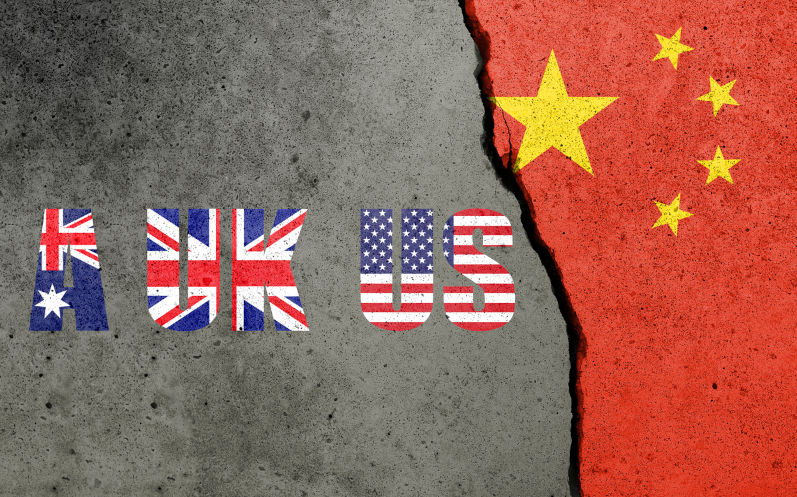AUKUS as morbid “Deterrence”
September 2, 2023
_There is a curious Chinese saying that cautions against “_calling a stag, a horse”. As the Qin empire disintegrated, the wily Prime Minister Zhao Gao fed the second Qin dynasty Emperor (221-206 BC) false reports of imperial military victories. Lining up all the ministers at court, Zhao showed them a stag and demanded that they swear the stag was a horse. Most agreed. The few who boldly refused were executed.
Indeed, politics can interfere with clear communication, an essential aspect of good governance, not to mention the conduct of diplomacy. At the recent 2023 ALP National Conference, the Michael Wright/Josh Nelson amendment sought to expunge mention of nuclear submarines and AUKUS participation from the Party’s National Program. The media hyped the ensuing argy bargy as evidence of political division, but ultimately there was no policy change.
Freemantle MP Josh Nelson spoke to problems of nuclear waste and the danger of Australia’s precipitous incorporation into a platform focusing on war with China. Pat Conroy, the Minister for Defence Industry, pooh-poohed the critics as apologists for “appeasement”. Defence Minister Richard Marles and PM Anthony Albanese argued that AUKUS participation supported Australia’s mature sovereign independence, and the related reset of the national economy would create new opportunity for jobs and high-end technical cooperation with allies. Furthermore, the new nuclear submarines would not carry nuclear weapons, and their operation would be consistent with Australia’s commitment to the Non-Proliferation Treaty. “Deterrence” had become necessary in light of regional uncertainties. Referring to just taking a “small step”, Marles rather ambitiously claimed that AUKUS will establish new “strength”, upholding peace against war.
“Deterrence” is too often a deceptively simple cost-benefit calculation, complicated in practice by changing politics and interests. The Oxford Concise Dictionary of Politics offers the following definition: “The policy of attempting to control the behaviour of other actors by the use of the threats.” “Deterrence” requires that all the actors understand each other’s objectives and know what they are doing. In his classic, The Calculus of Deterrence, Professor B.M. Russett advised that effective deterrence is predicated in a deep understanding of the projected enemy’s interests, priorities and strategic objectives and that the threat of deterrence must be communicated clearly despite the white noise of world politics.
The Western liberal democracies often proceed without a “deep understanding” of China as a threatening enemy. They loudly cite China’s disruption of the international “rules-based order”, its heightened aggressive tendencies and military expenditures, not to mention attempts to make the world kowtow to Chinese civilisation. China must be deterred! However, in his report to the 25 October 20-22 National Party Congress, Xi Jinping had urged a “wholistic approach” to analysing geopolitics. Underscoring his own pragmatism, he cited Western imagery of the “black swan” and “grey rhinoceros” and urged his own Party to study hidden trends that could suddenly have a high impact on China. The greater part of his speech, however, reflected his idealistic belief in “rejuvenation”, whereby China underwrites “a major-country diplomacy with Chinese characteristics on all fronts” in order to facilitate “the future of humanity” on the basis of a “true multilateralism”. Western analysis presumes China’s utter lack of responsibility and has all but ignored Xi’s protestations that China, will, with “an open mind”, “respect the concerns of people from all countries [to play] a part in resolving the common issues, facing humanity.”
AUKUS “deterrence” is a stumbling block to peace. On the plus side, there is a rough parallel between Foreign Minister Penny Wong’s 17 April 2023 National Press Club approach “to cooperate where we can and disagree where me must” and the Chinese approach, “seeking common ground, while reserving differences”. Minister Wong warned that all parties are compromised in any pathological trend, focusing too exclusively on great power competition for primacy. Such competition “…diminishes the power of each country to engage other than through the prism of great power.” The Chinese would immediately agree. However, AUKUS exists because China exists as an enemy autocracy. Notwithstanding the sophisticated rationality of Penny Wong, her government continues to endorse an AUKUS strategy of deterrence that seeds the competitive proliferation of alliances, a regional arms race and never-ending military exercises. The current morbid subscription to “deterrence” is working against inclusive balanced regional cooperation. Is this in Australia’s own national interest? Australia’s number one customer is becoming Australia’s number one enemy. It is no surprise that Beijing sees Australian participation in AUKUS “deterrence” as part of a Western strategy to create a “Pacific NATO”. This is more than a wrinkle. What have we got– a “horse” or a “stag”? Australian policy has yet to deal with the inconvenient contradiction that lies at the heart of AUKUS “deterrence”.

